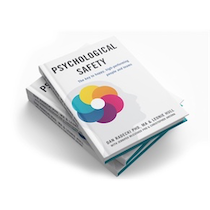DIFEST Global 2022 Conference
What role does mindfulness play in a diverse and inclusive workplace?
Besides its most popular benefit as a tremendous stress reliever, according to Forbes, mindfulness gives employees permission and space to think and be present, leading to mental agility, resilience, and self-awareness. Mindfulness is instrumental in developing empathy, compassion, and the ability to relate to one another, which is conducive to cultivating workplace diversity.
What are the ways your company encourages mindfulness at work? How do you use mindfulness in the workplace?
Join a conversation with Dan Radecki and Heather Esposito, M.Ed, PCC as they share insights on how mindfulness can be a powerful tool for equity and inclusion in the workplace.
Presenters

Dr Dan Radecki
Co-founder & Chief Scientific Officer

Heather Esposito
Director Learning, Development and Colleague EngagementDirector Learning, Development and Colleague Engagement BPM LLP











